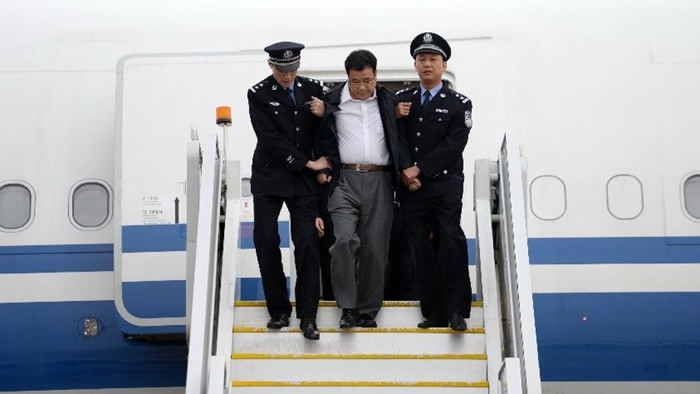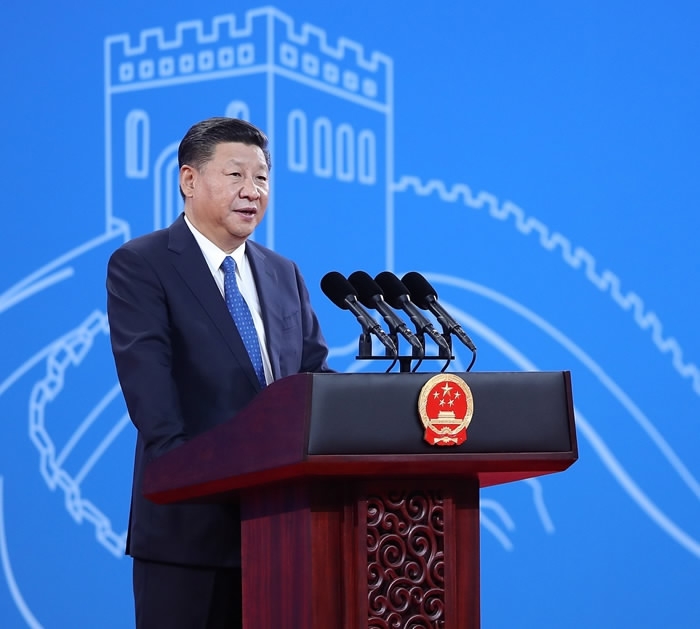
Politics
22:09, 26-Sep-2017
Interpol: China's fugitives chase not crackdown on dissidents
By Han Peng

The scene of fugitives being brought down from a plane has become familiar in China. Authorities said on Monday that 46 of the 100 most wanted fugitives on the Interpol's Red Notice have been brought home, since Beijing started its anti-corruption campaign four years ago.
Chinese President Xi Jinping called on the international law enforcement platform to play a bigger role in fighting transnational crimes, as the century-old organization gathered in Beijing for its 86th General Assembly.
The call won support from officials of some major Western powers, including France.

Chinese President Xi Jinping addresses the opening ceremony of the 86th Interpol General Assembly at Beijing National Convention Center, September 26, 2017. /Reuters Photo
Chinese President Xi Jinping addresses the opening ceremony of the 86th Interpol General Assembly at Beijing National Convention Center, September 26, 2017. /Reuters Photo
"We are trying to work very closely with China on this subject. I know that two more fugitives were sent back to China. And we are working together to do the best work possible," Sophie Hatt, international cooperation chief of the French Ministry of Internal Affairs, told CGTN.
China's international manhunt has brought home over 3,000 fugitives, and recovered nearly nine billion yuan (around 1.2 billion US dollars) worth of ill-gotten wealth.
However, some human rights advocates have voiced concerns over the neutrality of the Interpol. Critics fear Beijing may use the mechanism to hunt down dissidents, but it's a concern Interpol officials say is unfounded.
"We have been significantly increasing internally our legal mechanism to assess every single red notice request that comes from many of our member countries and we all treat these requests seriously, check them against our rules. And again, at the end, these red notices enable our member countries to track criminal activity and to arrest fugitives," Interpol Secretary General Jurgen Stock said at the assembly.

Some alarming figures were released during the event in Beijing.
Since the 9/11 attack, there have been over 70,000 terrorist attacks around the world, and the threats are still on the rise. And of the 170 million cyber crimes committed every year, only one in a thousand cases is ever solved.
China says it is working more closely with the Interpol to deal with the rising number of security threats. In 2016, Chinese police investigated over 2,500 cases under the request of the Interpol — a sharp increase of 140 percent compared to a year earlier.
Last year, the Interpol elected Meng Hongwei, vice minister of China's Public Security Ministry, to be its president. It was the first time a Chinese official was selected to hold the post since the Interpol's foundation in 1914.
Meng vowed more cooperation with his foreign counterparts and said Beijing is determined to leave criminal suspects with no safe haven in the world.

SITEMAP
Copyright © 2018 CGTN. Beijing ICP prepared NO.16065310-3
Copyright © 2018 CGTN. Beijing ICP prepared NO.16065310-3